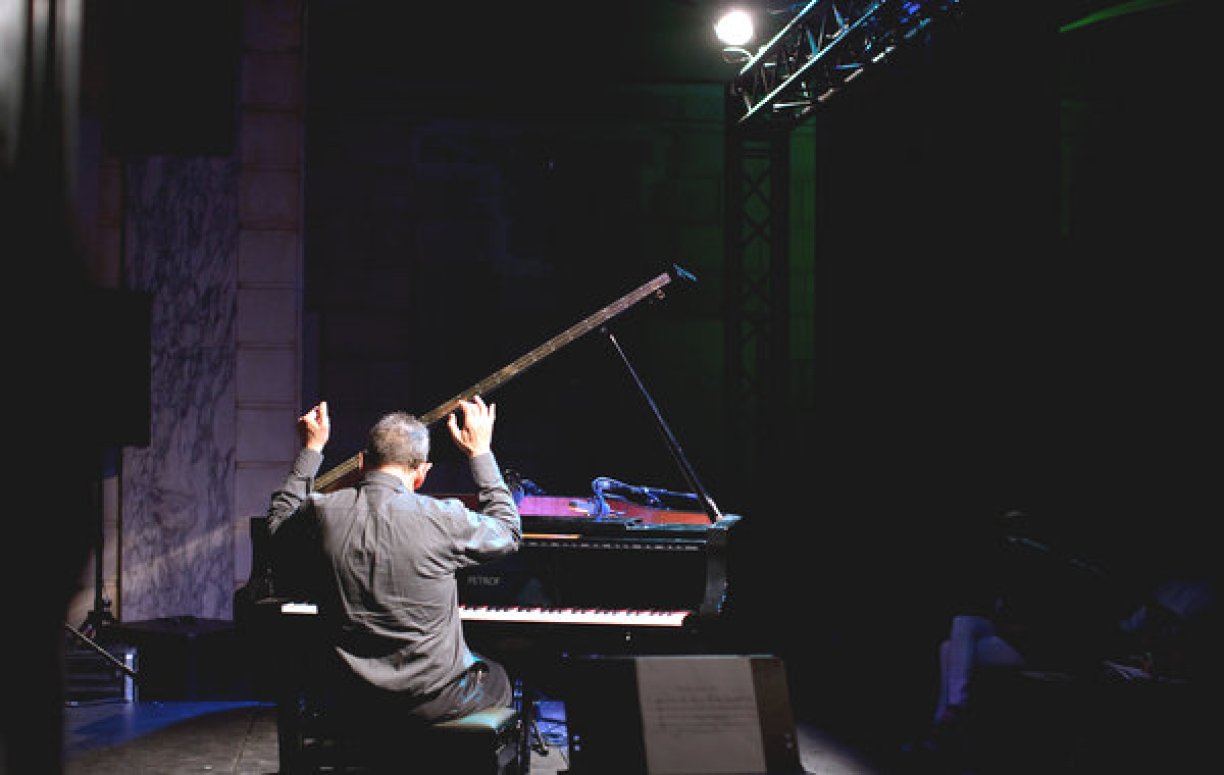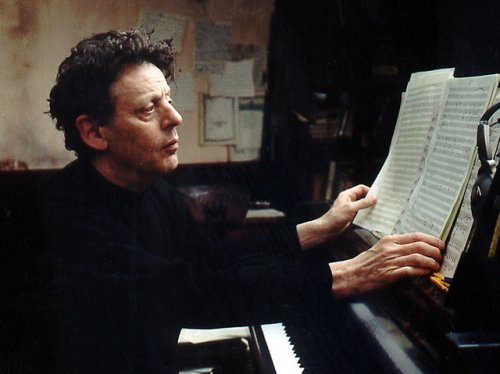Zachary Woolf in the New York Times on the opening night of Philip Glass: Music With Friends, Wed June 15, 2012.
http://www.nytimes.com/2012/06/15/arts/music/philip-glass-at-issue-proj…
Thematic tightness is the name of the game in classical music these days. The onus is on artists to organize events that are as satisfying for the mind as for the ear.
This has generally been a good thing, prompting audiences to think about the works they are hearing and make connections among them. But the premium placed on the concert-as-seminar can make less rigorously plotted shows seem somehow random, even dumb.
A concert on Wednesday evening featuring Philip Glass, who celebrated his 75th birthday in January, opened a three-evening benefit, “Philip Glass: Music With Friends,” for the Issue Project Room in Brooklyn. At first glance the program, which paired Mr. Glass with the singer and songwriter Stephin Merritt and the avant-garde trumpeter Nate Wooley, seemed thrown together, a shaggy grab bag.
It turned out to be, frankly, fabulous. You didn’t miss a neat organizing principle. Sometimes the spectacle of talented people doing the things that interest them in front of an engaged, appreciative audience is a theme in itself.
The general view of Mr. Glass’s music still places its cool, precise qualities front and center. A competent if not scintillating pianist, Mr. Glass brings out rougher and more human aspects of his own work.
On Wednesday he played three of his piano études with amiable fuzziness and great feeling. There was an endearingly tentative, even halting, quality to these performances; they ebbed and flowed.
The Étude No. 1 has a grand opening that leads into waterfalls of classically Glassian arpeggios. In Mr. Glass’s washy rendition it evoked Debussy, alongside honky-tonk gestures out of an old-school music hall. The gentle Étude No. 2 unfolds with the melancholy emotional pull of a Rachmaninoff prelude; Mr. Glass then jumped ahead without pause to the brightly chugging Étude No. 10.
This juxtaposition of hard-driving virtuosity and plangent elegy is also a defining feature of “Knee Play 4” from Mr. Glass’s opera “Einstein on the Beach.” Interpreted by the violinist Antoine Silverman, who is playing/enacting/embodying the title role in the current world tour of “Einstein,” “Knee Play 4” was even more pared down than usual, a Paganini caprice that conjured up Irish folk fiddling as much as Bach, without the calmly soaring male chorus that accompanies it in the opera.
The two other acts had, refreshingly, very little to do with Mr. Glass or his style. Mr. Wooley, the trumpeter, developed his mesmerizing “Seven Storey Mountain,” a continuing project, in a residency at the Issue Project Room last year.
Mr. Wooley uses a trumpet without a mouthpiece, then amplifies it, creating breathy, lightly pitched, sometimes squawking, sometimes almost spoken sounds that whisper over a dense shimmer: the occasional bell-like tones of two vibraphones, swishy percussion and low chords from the guitar.
Finally, in one of those hard-to-believe duets, Mr. Glass played an affecting, wandering riff on the piano for the first number in Mr. Merritt’s set. In that song and the six that followed, including classics like “The Book of Love” and newer ones like “Andrew in Drag,” Mr. Merritt accompanied himself on the ukulele; his craftsmanship is as elegant, his performance as memorably laconic, and his lyrics — with their Cole Porter wit and emotion — as ruefully hilarious as ever.


